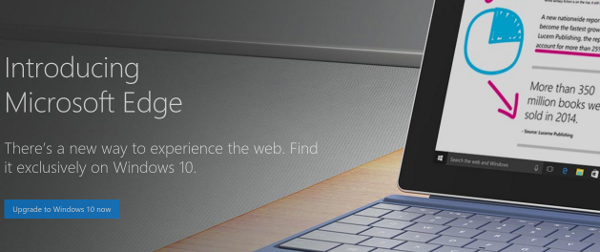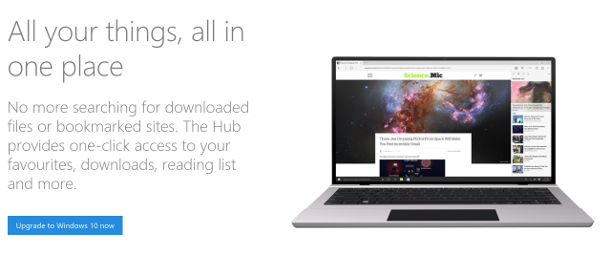Will Microsoft Edge Be Able To Succeed?

There are numerous web browsers out there, each with its set of advantages and disadvantages. Plus, every user has his or her preference when it comes to web browsers. A good number of users rely on Chrome, especially because it can sync your bookmarks and all other data with your Google account whereas many others choose Firefox. Similarly, Opera and Safari too, though less popular, are key players in the game.
A while ago, Microsoft announced the launch of a new web browser, named Edge. While Microsoft has had Internet Explorer for decades now, the company has finally realized that the days of IE are numbered, and even gone ahead and retired all versions of Internet Explorer except version 11. That said, how exactly will the new web browser Edge fare? Will it be able to compete in a crowded world of web browsers?


Microsoft Edge: Overview
First up, Microsoft Edge does not seem to be as bad as its ancestor, Internet Explorer. In all honesty, it is trying hard and will soon have a lot to offer for web developers. Take a look at these features:- Fetch API
- Web Notifications
- Beacon API
- WOFF 2.0
- High-Resolution Time Level 2
- Future ECMAScript proposals
- JavaScript pipeline improvements for future WebAssembly concepts

The Ground Reality
But all of the shiny new features and ideas apart, how is Edge doing so far? Well, Microsoft decided to offer Windows 10 as a free upgrade to most of the users around the world, and with that, Edge also got a chance to become the default browser on a lot of devices. Of course, being the default browser on an operating system does not mean the users will make it their default web browser, but it still provided Edge with a fighting chance. Several users do not bother changing the default web browser, or installing a new one, and might in fact just continue using Edge. However, the idea, though pretty good, has so far been implemented poorly. Forcing or urging users to “give Microsoft Edge a shot” is a poor strategy. At best, it will make users annoyed with Edge even before they use it, and at worst, it will cause a domino effect and encourage users to turn towards alternative web browsers, and abandon Edge in total. Thus, the road ahead for Edge is pretty steep, and its journey involves two major challenges:1. Saturated Scenario
There are many already established and powerful web browsers out there -- Chrome, Firefox, Opera, Safari, you name it! Edge will face a stiff challenge from some of them. Safari can be ruled out -- for the most part, Safari is what Apple fanboys use, and Edge is probably not going to target that user niche anyway. Chrome, Opera and Firefox, however, are a different story. Edge is making some amends by taking things away from the local machine, and integrating with Windows and Microsoft accounts of users to help them sync their data. Similarly, steps such as open sourcing its ChakraCore Engine are the need of the hour, and this can help Edge get some minor boost in its bid to challenge Firefox. Mozilla has had an excellent reputation in the open source world (something Microsoft has never had), and by turning towards open source, Edge can get some love from the community. However, browsers such as Opera, in spite of their relatively smaller user base, continue to be extremely relevant on account of one key aspect: mobile internet.

I Like It!
Microsoft Edge have his own adblocker.. I wonder if he will also block Windows 10 ads..